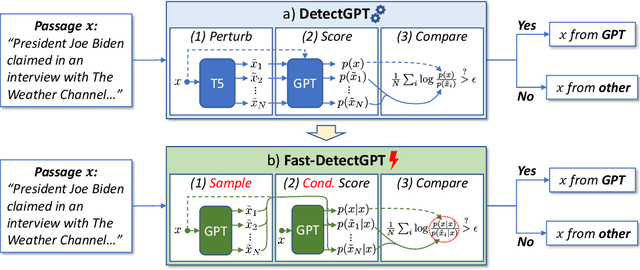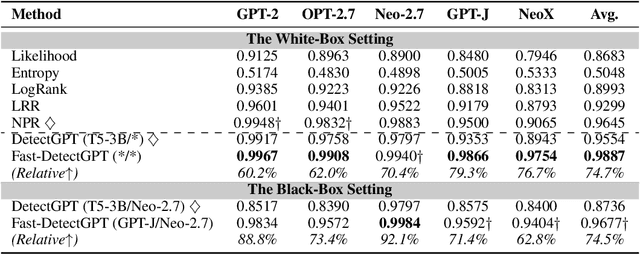Fast-DetectGPT: Efficient Zero-Shot Detection of Machine-Generated Text via Conditional Probability Curvature
Paper and Code
Oct 08, 2023



Large language models (LLMs) have shown the ability to produce fluent and cogent content, presenting both productivity opportunities and societal risks. To build trustworthy AI systems, it is imperative to distinguish between machine-generated and human-authored content. The leading zero-shot detector, DetectGPT, showcases commendable performance but is marred by its intensive computational costs. In this paper, we introduce the concept of conditional probability curvature to elucidate discrepancies in word choices between LLMs and humans within a given context. Utilizing this curvature as a foundational metric, we present Fast-DetectGPT, an optimized zero-shot detector, which substitutes DetectGPT's perturbation step with a more efficient sampling step. Our evaluations on various datasets, source models, and test conditions indicate that Fast-DetectGPT not only outperforms DetectGPT in both the white-box and black-box settings but also accelerates the detection process by a factor of 340, as detailed in Table 1.
 Add to Chrome
Add to Chrome Add to Firefox
Add to Firefox Add to Edge
Add to Edge